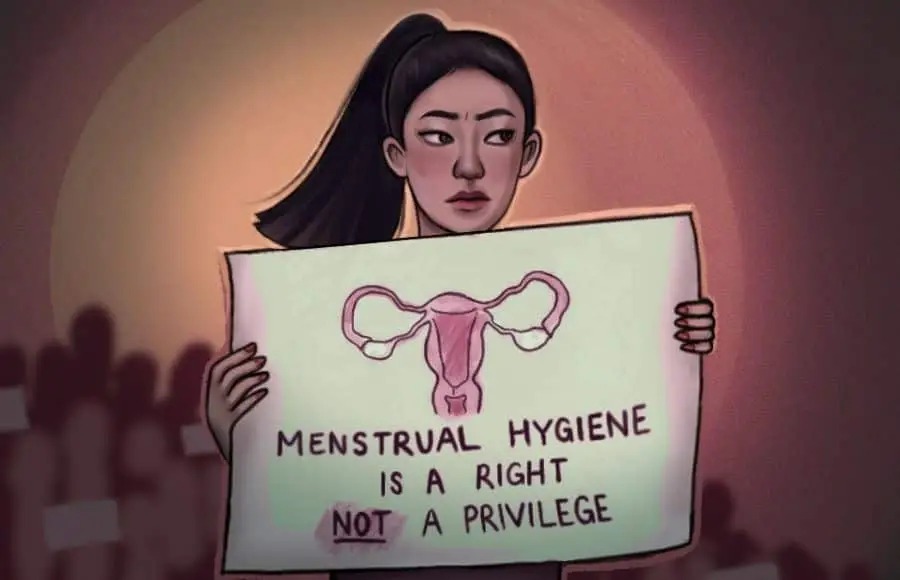The Revolution in Menstrual Health: Dispelling the Silence and Stigma Across cultures and communities, menstruation has been shrouded in stigma, shame, and silence for centuries. Even though menstruation is a normal biological process that affects half of the world’s population, conversations about it have frequently been restricted, taboo, or rife with false information. However, a strong worldwide movement known as the menstrual health revolution has surfaced in recent years with the goal of ending the taboo, dispelling myths, and calling for the rights, equality, and access of menstruating people.

Recognising the Stigma
The stigma attached to menstruation has deep cultural and religious roots. Menstruating people are still viewed as dirty or impure in many societies. During their periods, they are frequently kept apart, prohibited from participating in religious activities, forbidden from cooking, or even kicked out of their homes. In addition to demeaning women and girls, these practices also help to marginalise them systemically.
This shame culture begins at a young age. Young girls frequently start their menstrual journeys without the proper knowledge or assistance. Teachers may refrain from talking about menstruation in class out of concern for awkwardness or controversy. Many girls may be confused, afraid, or think that menstruation is something to hide because their parents may feel unprepared or ashamed to have “the talk.”

The Implications in the Real World
Menstrual stigma has far more negative effects than just embarrassment. Millions of people worldwide suffer from a lack of access to safe sanitation facilities, appropriate education, and menstrual hygiene products, especially in rural and low-income areas. An estimated 500 million people worldwide do not have access to menstruation supplies and sanitary facilities, according to UNICEF.
Due to their periods, girls in some areas miss multiple days of school every month, which causes learning gaps and increases the dropout rate. Lack of menstrual support at work, such as insufficient restrooms or strict attendance regulations, can affect output and job stability.
Another public health concern is menstrual health. Infections and other issues with reproductive health can result from poor menstrual hygiene. But because of the stigma, many people suffer in silence and are reluctant to ask for information or assistance.

The Menstrual Health Movement’s Ascent
Thankfully, things are starting to shift. Menstrual health is being prioritised as a fundamental human right by activists, non-governmental organisations, educators, and even governments.
Globally, grassroots organisations are playing an important role. Menstruation-related taboos are being broken down, awareness is being raised, and menstrual products are being distributed by organisations like The Pad Project, Days for Girls, and Menstrual Hygiene Day.
At the vanguard of the movement is education. To promote empathy, understanding, and empowerment, comprehensive menstrual health education is being implemented in schools for both boys and girls. We create the foundation for a more inclusive and knowledgeable generation by normalising discussions about menstruation.
Social media has grown to be an effective instrument as well. Once-hidden voices and stories have been amplified thanks to hashtags like #PeriodPositive, #EndPeriodPoverty, and #MenstruationMatters. From criticising tampon taxes to endorsing sustainable menstrual products, celebrities, influencers, and activists are using their platforms to push for change.

Innovations and Policy Changes
A few nations have started putting progressive policies into effect. In 2020, Scotland became the first nation to offer free menstrual products to anyone in need, making history in the process. India has started a number of programs to give sanitary pads away for free or at a reduced cost in rural and school settings. One of the first countries in Africa to do away with taxes on menstruation products was Kenya.
This revolution has also been influenced by advancements in menstrual hygiene products. Menstrual cups, period pants and reusable pads provide economical and environmentally friendly substitutes for throwaway items, giving consumers options that meet their requirements.

The Path Ahead
Although there has been unquestionable progress, the battle is far from over. Access to necessary resources is still limited, and menstrual stigma is still widespread in many parts of the world. We need intersectional approaches that take poverty, disability, and cultural background into account in addition to gender if we are to actually break the silence.
Human dignity, public health, and gender equality all depend on menstrual health. Governments need to spend money on healthcare, education, and infrastructure. Businesses should design spaces that are conducive to menstruation. Communities must create open, secure forums for discussion.
Above all, we must all contribute to ending the taboo by discussing periods candidly, hearing firsthand accounts, and dispelling the shame and myths that have endured for far too long.

In conclusion
The revolution in menstrual health is about more than just pads and periods; it’s about equity, dignity, and power. It’s about breaking centuries of silence and creating a society in which menstruation is embraced as a natural part of life rather than viewed as a hindrance. Joining the movement brings us one step closer to a time when everyone can menstruate with dignity, pride, and health, and when no one is held back by a natural cycle.
ALSO READ THIS: Karishma Kohli: Who Is She? The filmmaker, who recently got married, is Katrina Kaif’s best friend.




